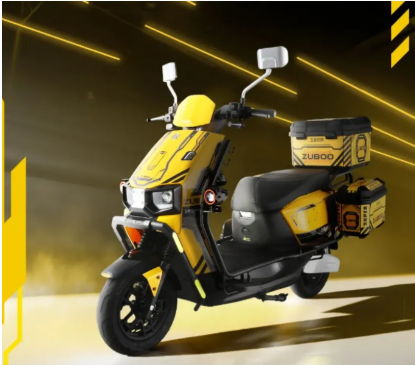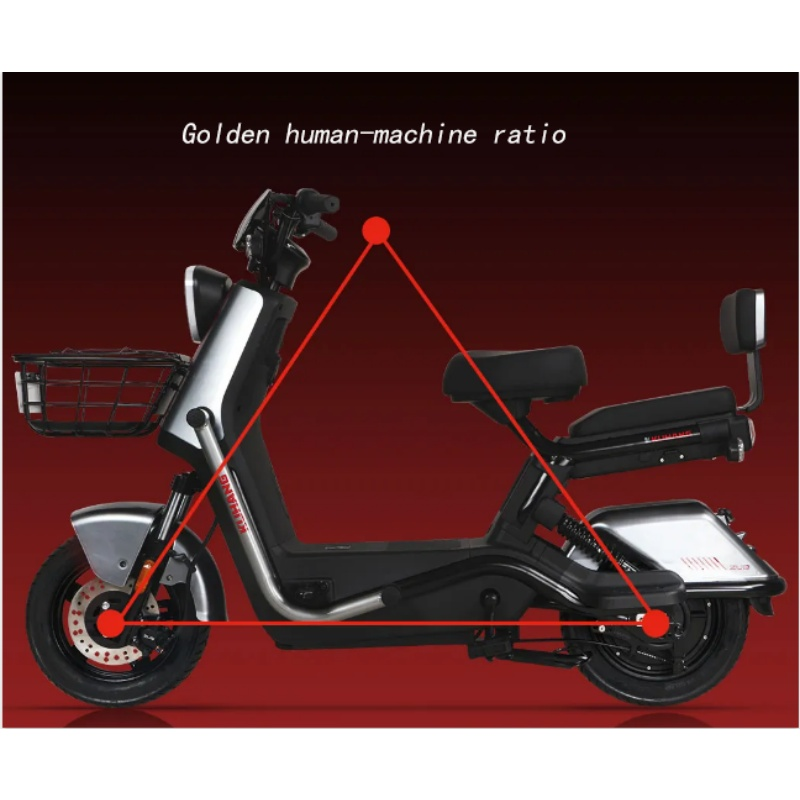הכרה עם המהפכה של האופניים החשמליות בתנועה עירונית מודרנית
נוף התחבורה העירונית עבר שינוי מרשים עם עלייתם של אופני חשמל . כלי רכב חדשניים אלו משלבים את הפשטות של אופניים מסורתיים עם סיוע ממונע, ומייצרים פתרון יעיל ומודגש מבחינה סביבתית עבור נסיעות יומיות. ככל שערים הופכות למאוכלסות יותר ויותר והדאגות הסביבתיות עולות על סדר היום, האופניים החשמליים צצים כחלופה משכנעת לנוסעים המודרניים המחפשים איזון בין נוחות, קיימות ותועלת.
הפופולריות הגוברת של האופניים החשמליים אינה סתם מода חולפת. בעזרת טכנולוגיית סוללות מתקדמת, מערכות מנוע משופרות ועיצובים sofisticated, כלי תחבורה אלו מציעים פתרון פרקטי לאתגרי תחבורה נפוצים. בין אם אתה מחפש להימנע מפקקי תנועה, להפחית את ח footprint הפחמן שלך, או פשוט להגיע לעבודה מבלי להזיע, אופניים חשמליים עשויים להיות כלי התחבורה המושלם עבורך.
מאפיינים עיקריים שיש לשקול בבחירת האופניים החשמליים שלך
עוצמת המנוע וمواصفות הביצועים
הלב של כל אופניים חשמליות הוא מערכת המנוע. מרבית האופניים החשמליות ליומיום מגיעות עם מנועים בטווח של 250 וואט עד 750 וואט. לעירוניות טיפוסית, מנוע בטווח 250-500 וואט מספק לרוב עוצמה מספקת כדי להתמודד עם רוב התחומים. מיקום המנוע – בדסקה או באמצע – משפיע משמעותית על חוויית הרכיבה. מנועים ממוקמים באמצע מספקים חלוקת משקל טובה יותר ותפעול טבעי יותר, בעוד מנועים בדסקה זולים לרוב ודורשים תחזוקה פחותה.
בעת הערכת ביצועי המנוע, יש לשקול את עוצמת הטיורק, אשר קובעת עד כמה האופניים מתמודדות עם עליות ותאוצה. רמת טיורק גבוהה יותר פירושה יכולת טיפוס טובה יותר והאצה חלקה מהמנוחה – חשוב במיוחד לתנועה עירונית עם עצירות רבות.
טווח הסוללה וניידות הטעינה
כמות האנרגיה של הסוללה משפיעה ישירות על טווח הנסיעה ועל תפקוד הגה של האופניים החשמליים שלך. אופניים חשמליים מודרניים מציעים בדרך כלל טווח של 40–95 ק"מ בטעינה אחת, תלוי בגורמים כמו נסיעה בטבע, משקל הراكב ורמת העזרה. לנסיעה יומית לעבודה, חשבו על המרחק הלוך ושוב ובחירת אופניים עם טווח גדול ב-50% לפחות ממה שאתם צריכים, כדי לאפשר ירידה בביצועי הסוללה לאורך זמן.
שקלו את זמן הטעינה ונגישות הסוללה. רוב האופניים החשמליים דורשים 4–6 שעות לטעינה מלאה. חפשו דגמים עם סוללות ניתנות להסרה אם אתם צריכים לטעון במקום העבודה או גרתם בבניין שבו קשה להכניס את האופניים החשמליים לדירה.

עיצוב שלדה ונוחות רכיבה
חומר השלדה ובנייה
שרשראות אופניים חשמליות מגיעות בمواد שונות, כל אחת מהן מציעה יתרונות ייחודיים. שרשראות אלומיניום הן פופולריות בזכות תכונת הקלות שלהן ועמידותן בפני קורוזיה, מה שעושה אותן אידיאליות לשימוש יומיומי. שרשראות פליז מציגות קשיחות מצוינת ואיכות נסיעה חלקה יותר, אך מוסיפות משקל. שרשראות סיבי פחמן, למרות שהן יקרות, מציעות את היחס הטוב ביותר בין חוזק למשקל וכן בלימת ויברציה מרשימה.
הגאומטריה של השרשראות משפיעה משמעותית על הנוחות ועל תפקוד הנהגה. שרשראות עם מבנה נמוך (step-through) מאפשרות עלייה וירידה קלות, במיוחד כשאתה נושא תיקים או לובש בגדים רשמיים. שרשראות מעוצבות בצורת מעוין (diamond frames) מספקות קשיחות טובה יותר והעברת כוח מיטבית, והן מתאימות לנהגים שמחפשים ביצועים.
רכיבים שמשפרים את הנוחות
אופניים חשמליות המותאמות לנוסעים יומיומיים צריכות לכלול רכיבים שמקסמים את הנוחות במהלך הרכיבה היומומית. יש לחפש מושכות ארגונומיות המאפשרות שגרה זקופה של גב וכתפיים, וכך מפחיתות את המתח עליהן. מערכות חניקה איכותיות, בין אם הן רק בשילוב צינור קדמי ובין אם מדובר בחניקה מלאה, עוזרות לספוג רעידות ומשפרות את נוחות הנסיעה.
יש לשקול את איכות המושב ואת אפשרויות ההתאמה שלו. מושב נוח עם חניקה מתאימה ועיצוב ארגונומי משפיע משמעותית על חוויית הרכיבה היומית. בנוסף, יש לבחון את רוחב הגלגלים ואת דפוס השרף - גלגלים רחבים עם שרף מתון מציעים יציבות ונוחות טובות יותר על פני משטחים עירוניים שונים.
תכונות מעשיות לנסיעה עירונית
יכולות נשיאה של מטען
אופניים חשמליות להסעה יומיומית צריכות לעמוד בצרכים שלך בהובלת חפצים. מושבות מובנות, תיקיות צד או מושבות סל הן הכרחיות להובלת חפצים לעבודה, קניות או פריטים אחרים. דגמים מסוימים מציעים פתרונות הובלה משולבים שמגבירים את איזון המשקל מבלי לפגוע בתכונות הנהיגה.
קחו בחשבון את משקל האופניים הכולל, כולל הרוכב והמטען. אופניים חשמליים איכותיים בדרך כלל תומכים במשקלים משולבים של 110-160 ק"ג. חפשו נקודות הרכבה יציבות למתקן ושקלו האם אתם זקוקים לאפשרויות נשיאה קדמיות ואחוריות.
מאפייני ביטחון וראייה
הסעה יומיומית כוללת לעתים קרובות נהיגה בתנאי אור משתנים ובמגבעים שונים. מערכות תאורה מובנות,שמופעלות על ידי הסוללה הראשית, מספקות נראות אמינה. לחפש דגמים עם אורות קדמיים ואחוריים,עדיף עם יכולת הפעלה גם ביום. צמיגים עם פסי ריפלקטורים וחלקי המסגרת תורמים לתכונות ביטחון פאסיביות.
פנדרים מגנים עליך מפני סprüי דלק ופסולת, בעוד מגני שרשרת שומרים על הבגדים נקיים ובטוחים מרכיבים מכניים. שקול רכיבה על אופניים עם מערכות אזעקה מובנות או מעקב GPS לצורך הגנה מוגזמת בסביבות עירוניות.
תחזוקה ושקול בעלות לטווח ארוך
דרישות שירות וזמינות
אופניים חשמליים דורשים תחזוקה קבועה כדי להבטיח תפעול מהימן. שקול את זמינות דוכנים מקומיים או מרכזי שירות עבור המותג שבחרת. חפש דגמים עם רכיבים נוחי גישה וחלקים סטנדרטיים שאינם דורשים כלים מיוחדים או מומחיות לצורך תחזוקה בסיסית.
הבנה של תקופת האחריות והשירותים התומכים היא קריטית. יצרנים איכותיים מציעים לרוב אחריות מקיפה על השלדה, המנוע והסוללה - לעתים קרובות עם תקופות אחריות שונות עבור כל רכיב. למד את המוניטין של היצרן ביחס לשרות הלקוחות וזמינות החלקים.
ניתוח עלות הבעלות
למרות שהמחיר הראשוני הוא משמעותי, חישבו את עלות הבעלות הכוללת לאורך מספר שנים. התחשבו בעלויות תחזוקה צפויות, החלפת סוללה ותיקונים פוטנציאליים. השוו את העלויות האלה מול הוצאות התחבורה הנוכחיות שלכם כדי להבין את הערך בטווח הארוך.
העריכו את הערך השוק של מותגים ודגמים שונים. יצרנים מוכרים בעלי מוניטין מוצקים מציעים לרוב שמירה טובה יותר על הערך. בנוסף, התחשבו בחסכון הפוטנציאלי מהתחבורה הציבורית או עלויות דלק נמוכות יותר.
שאלות נפוצות
כמה זמן נמשכת סוללת האופניים החשמליים בדרך כלל?
סוללות איכותיות לאופניים חשמליים נמשכות בדרך כלל בין 500 ל-1,000 מחזורים, מה שמתורגם ל-3-5 שנים של שימוש רגיל. עם זאת, זה יכול להשתנות בהתאם לדפוסי השימוש, תנאי האחסון וعادות הטעינה. תחזוקה נכונה של הסוללה, כולל הימנעות מטמפרטורות קיצוניות ושימור רמות טעינה סדירות, יכולה להאריך משמעותית את חיי הסוללה.
האם רכישת אופניים חשמליים שווה את ההשקעה עבור נסיעות יומיומיות?
אופניים חשמליים נוטים להוכיח את ערכם ככלי תחבורה שיעוררי עלויות כאשר מתחשבים בהפחתת עלויות תחבורה, דמי חנייה ובריאות. למרות שההשקעה הראשונית עשויה להיראות גבוהה, רבים מהמשתמשים משלמים את ההוצאות תוך שנה עד שנתיים דרך חיסכון בדלק, תחבורה ציבורית ותחזוקת רכב. בנוסף לכך, הגמישות והדיוק של התחבשות עצמאית יכולים להעניק חיסכון משמעותי בזמן.
באילו תנאי מזג אוויר אפשר להשתמש באופניים חשמליים?
אופניים חשמליות מודרניות נועדו לפעול בתנאי מזג אוויר מרובים, כולל גשם קל וטמפרטורות מתונות. דגמים באיכות גבוהה מצוידים ברכיבים חשמליים המוגנים מפני מזג אוויר וمواد עמידות בחלודה. עם זאת, תנאים קיצוניים כמו גשם כבד, שלג או טמפרטורות קפואות עשויים להשפיע על ביצועי הסוללה ולדרוש שיקולים נוספים ביחס לשמירה. מומלץ לבדוק את דירוג המזג האוויר הספציפי של היצרן והמלצותיו.

